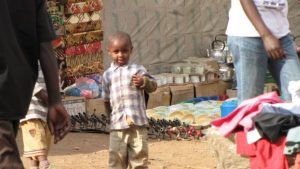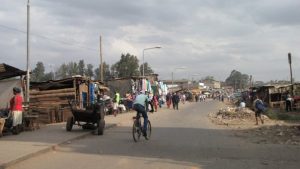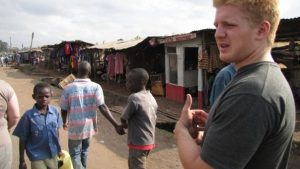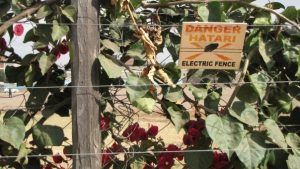The first leg of my journey in the foreign continent began with a staggering realization: “I’m not in Kansas anymore!” As I made my way through Jomo Kenyatta International Airport, my heightened precautionary intuition took effect as the negative stereotypes and conceptions of crime in Africa, perpetrated largely by Western media, ran through my train of thought.
Regardless of how open minded and eager I was to launch into this life-altering trip, it was hard to push years of CNN headlines and precarious warnings to the wayside when I stood alone in a foreign land as little white girl from Canada.
Despite my apprehension, I trekked onwards and found my connection who would take me to my first host family in Nairobi before heading to my final endpoint in Kajiado post volunteer training. As I entered the taxi cab and at last felt a level of comfort and refuge, my driver promptly turned around to look at me sheepishly tucked away in the backseat and stated proudly: “You’re in black man’s land now!”
Upon arriving at my Nairobi destination, I was greeted by a slew of other volunteers stemming from across the globe. After introductions and a quick nap to help adjust to the seven hour time differential, I left the security of the volunteer compound to walk through the slums and visit the market to fetch supplies. Up until this point, I had not yet experienced anything out of the norm besides the transformation in scenery and complexion. That was about to change.
The moment I left the compound, I had a hoard of Kenyan men reach out to touch me, and persistent shouting of “mzungu” which translates to “white skin”, “white person”, and in some variations, “someone who has money.” I stayed vigilant and listened to the direction of another volunteer who had been in the area for six weeks prior.
He advised me that while we were staying in an impoverished region, there was known tricks of the trade of thieves and banditry that I should be aware of but not to be in fear of. By keeping everything safe guarded, including any money or important documents, in a concealed money pouch and being weary of advances by more than one party, you would most likely avoid a situation.
After walking around for nearly an hour, my guide could tell that I was hungry and suggested we travel to Junction to a local restaurant called Java which boasted excellent food and drinks. As day turned into night, our initial of idea of walking to the mall did not seem like the ideal option any longer. On route, we were stopped abruptly by two policemen armed with AK47’s.
Unaware of the customs, I let Nathan do the talking. They demanded our passports and told us that we were under arrest when we did not produce them. I remained composed while Nathan defused the situation by sweet talking the cops to come visit him in Edinburgh. After a few minutes of conversation, they let us pass without further complications.
Fresh off our brush with the corrupt law, my guide advised me that it is not uncommon for militia and policemen to ask for passports. When they would acquire them, they would force the individuals to pay thousands of Kenyan shillings to get them back. It was an eye opening first-day experience, to say the least.
In spite of the first incident on the very first day in the country, it did not waiver my opinion of the otherwise friendly, honest, and fascinating Kenyan citizens I encountered. The four weeks following the police interaction went entirely crime-free and at the end of the day, the actions of one cannot be indicative or reflect an entire population.
What I gained from my time in Africa was that people are innately decent, considerate, and compassionate. Influenced by environment, status, and poverty, anyone of us could be lead down a different path. This experience only fueled my ambition to keep on the mission I set out to accomplish.



